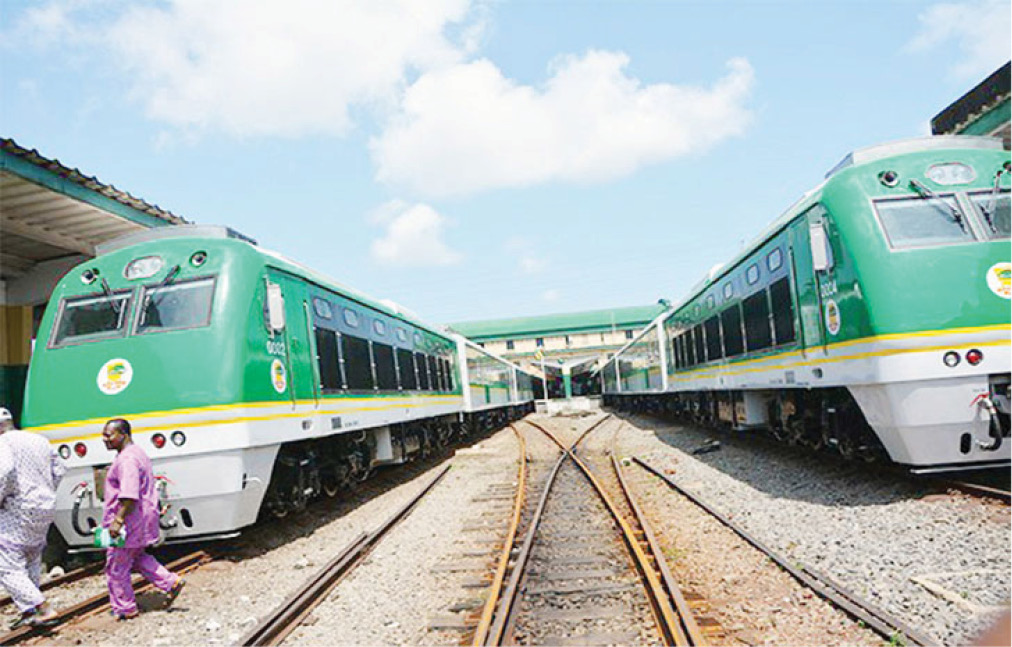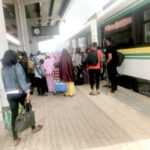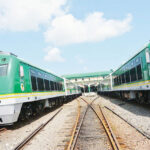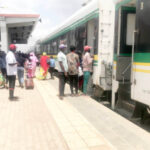The Abuja – Kaduna train project is one of the foremost projects executed with the loans from China, and there are doubts on how this project can generate enough to finance its repayment process, four years after the route was commissioned.
In 2010, the Federal Government borrowed $500 million (about N190.5 billion) from the Chinese Government through the China Exim Bank to build the facility.
A Chinese firm, the CCECC built the facility as part of the loan terms. The loan which is to be paid over a period of 20 years had a seven years grace period and a 2.5 per cent annual interest rate, data from the Debt Management Office (DMO), revealed.
However, there are doubts that the train service which has been active for a few years already could generate much revenue that would really repay the entire loan and the interest accruing.
Recently, the House of Representatives launched an investigation into the terms of the various loan agreements between the People’s Republic of China and the Federal Republic of Nigeria, which also threw up this project’s viability discussion.
Critical among the issues are Nigeria’s capability to repay the loan and the economic viability of the projects the loans are being invested in.
The economic viability also speaks to the economic impact of those projects, directly and indirectly. However, Daily Trust learnt that the repayment period for the project has already commenced and the Federal Government, through the Minister of Transportation, Mr. Rotimi Amaechi, said $96m has already been paid to the Chinese government.
DMO document shows $96.15m (N36.634bn) has been paid and $403.85m (N153.867bn) is still outstanding.
Regardless of whether the project can raise enough funds to repay the debt; the Federal Government will repay the debt with resources from other sources, especially from crude oil revenue, which is already happening, it was learnt.
Mr. Amaechi who spoke recently, said the project will also contribute some money to its repayment.
“We have already opened an escrow account to pay in the money. The minister of finance sent me the account details for the Nigerian Railway Corporation (NRC) to start paying in the money.
“So if we are making N120 million and we are running with N90m we can start paying 20-30 million naira monthly and before we know it, we can raise $1 million that we can send to the minister of finance to pay as our contribution.”
On July 26, 2016, President Muhammadu Buhari commissioned the Abuja-Kaduna rail line for commercial use. Four years later, the service has carried over four million passengers. The Abuja-Kaduna rail line is also gaining traction in terms of revenue generation.
The service now generates sufficient funds to run without government monthly subvention, records also showed.
The NRC Managing Director, Engr. Fidet Okhiria, in his response to our enquiries, said the Abuja-Kaduna rail service now generates between N130m to N140m every month. In the 2019 full year operations, the service generated close to N1.5bn, he said.
The average monthly running cost minus salaries is around N100m monthly he told our correspondent. Up till 2018, NRC recorded N20m losses monthly, according to him.
Speaking on the viability of this infrastructure, a London-based international strategic railway delivery specialist, Rowland Ocholi Ataguba, said the Abuja-Kaduna rail service cannot be fully optimised without a robust freight service.
He said freight service wouldn’t happen now because the line is short.
“When you start running freight over 600 kilometre that is when you will begin to talk of viability. For now, nothing will change.”
“It was never going to be viable as a passenger line. Freight would make it more viable,” he emphasized, adding that it was based on this that the line was conceived to be from Lagos to Kano. He said until that happens, the viability of the line won’t happen.
Other commentators have also questioned the profitability of the Abuja to Kaduna line. But the NRC MD said it is simplistic to access the facility’s benefits in terms of direct revenue accruals, even though on that score, it hasn’t done badly and would do better with more locomotives and coaches.
“I don’t understand why people should isolate rail from any other infrastructure. The government builds roads but no one asks if the road is earning. So why don’t we take rail like roads?
“The road is an enabler of commerce and so is the rail. Just like road aid people to move from one place to another and help develop trade and commerce, so is the railway. In the case of the railway, it will even facilitate more goods than the roads,” Okhiria explained.
“Before COVID, we were able to earn the money to run the Abuja-Kaduna service,” he said.
He agreed that indeed freight would be more profitable with a long haul, which is why the FG is completing the entire line from Lagos to Kano. The FG is already pitching for a $5.3bn loan from China, about N2.019 trillion, to build the Ibadan to Kaduna line. It is not exactly certain if the FG will get the loan.

 Join Daily Trust WhatsApp Community For Quick Access To News and Happenings Around You.
Join Daily Trust WhatsApp Community For Quick Access To News and Happenings Around You.


